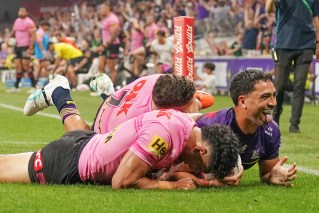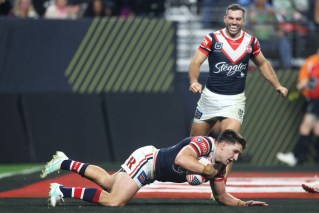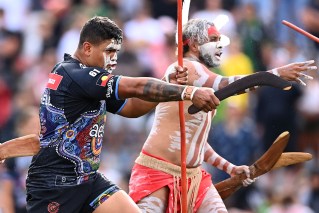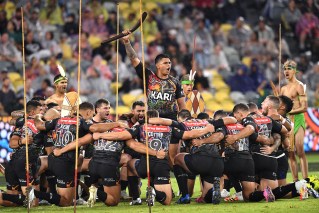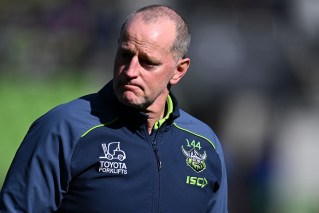New powers won’t keep all NRL superstars
Dave Smith’s new discretionary powers to recruit and retain marquee players wouldn’t necessarily have stopped superstars Sonny Bill Williams and Sam Burgess from walking away from the NRL.
So says the NRL boss himself after the league introduced the initiative among nine changes to the salary cap.
Smith’s increased powers were announced by the NRL at a meeting of club chief executives at Rugby League Central on Wednesday and was one of a number of changes made to salary cap rules ahead of the 2015 season.
Williams and Burgess, though, won’t be around in 2015 as they pursue different dreams in rugby union.
Williams, who has already won a Rugby World Cup with New Zealand in 2011 and a Super Rugby title with the Chiefs in 2012, is returning to the 15-a-side code in the hope of adding an Olympic gold medal when rugby sevens is introduced at next year’s Games in Brazil.
Burgess wants to play in the Rugby World Cup in his homeland of England next year.
“Sonny Bill wants to go off and play in the Olympics and I commend him for wanting to do that,” Smith said on Fox Sports’ NRL 360.
“He’s a great athlete and that’s one of the things that he wants to go after in his career.
“And Sam Burgess wants to go and play in the World Cup.
“Now I think sometimes people make life choices and it’s not about money, it’s not about the love of the game.
“It’s not about any of those sorts of things.”
The salary cap will rise to $6.55 million next year and increase to $7 million in 2017 following a comprehensive 10-month review of the cap.
Minor changes were confirmed such as the $200,000 veteran player allowance increasing by up to 50 per cent on a sliding scale with a maximum $250,000 per club in 2015 and $300,000 in 2016.
But the allowance will now apply to players serving six years with a club, not eight years.
There will be special provisions for teams who lose players through terminations and concussion, while transfer fees will be regulated either by including them in the cap or through other mechanisms.
But the June 30 transfer window will remain.
“What we found is the salary cap fundamentally works,” Smith said.
“What we’ve tried to do is to bring it into this century and modernise it and change the things that we need to change.”

